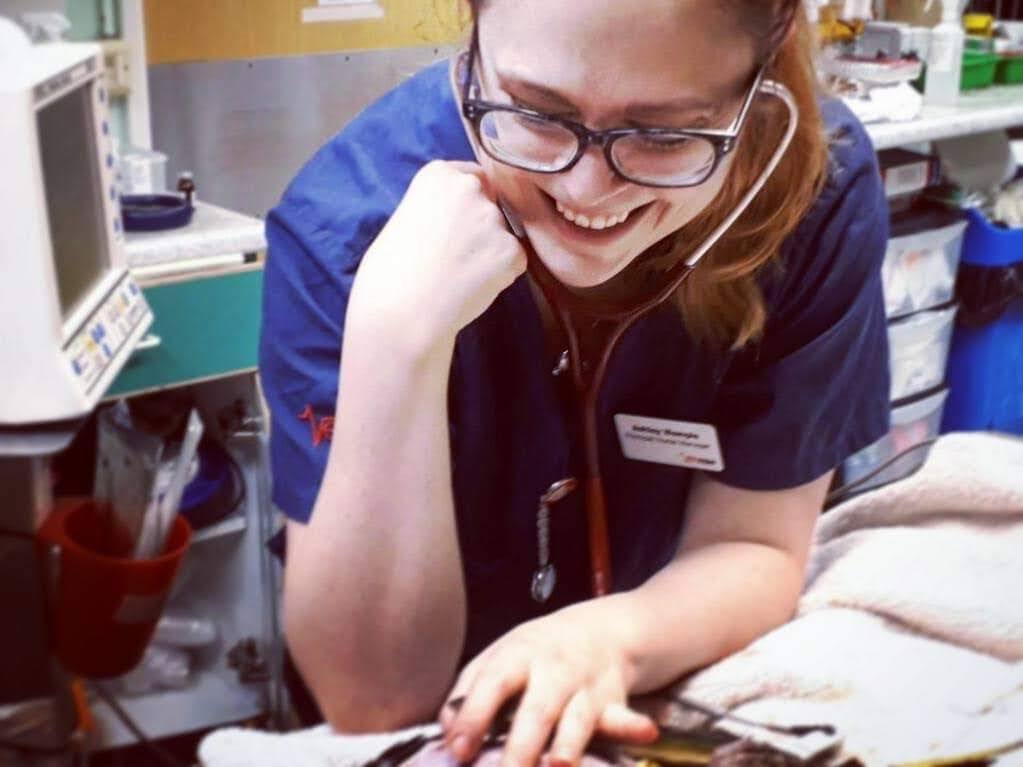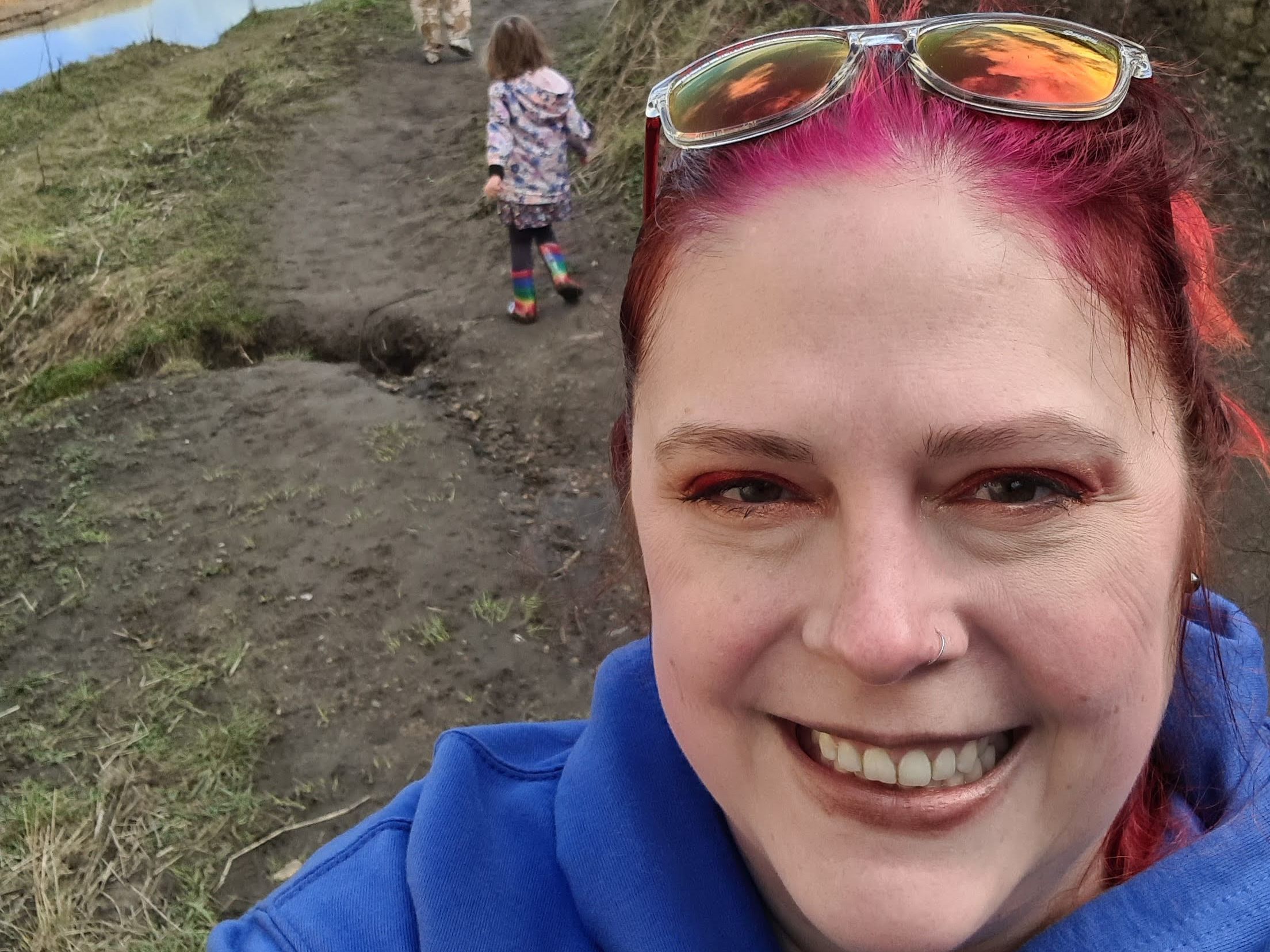Ashley Wemple, 40, is the third recipient of the £2000 award that aims to further Louise’s legacy of shared learning
Louise O’Dwyer, Vets Now’s clinical support manager, was a positive role model to countless veterinary professionals.
Vets Now launched the Louise O’Dwyer Bursary in 2019, following Louise’s tragic death aged just 45. The bursary aims to celebrate Louise, one of the world’s leading veterinary nurses, by furthering her ambition of advancing the veterinary profession through shared learning.
The third recipient of the £2000 CPD award is Ashley Wemple, clinical nursing lead and principal nurse manager at Vets Now Gateshead, where she’s worked for 14 years.
In this Q&A, Ashley discusses the early days of her veterinary career, her love of emergency and critical care, the importance of breaking down boundaries within veterinary clinics, plus the positive impact Louise O’Dwyer had on her and her feelings upon winning the bursary.
Had you always wanted to work in the veterinary sector?
I was definitely one of those kids who wanted to grow up and become a vet.
I went to university in North Carolina, which is where I’m from originally, to study for a bachelor’s degree in animal science. Whilst I was there, I started working part-time at a nearby ECC veterinary clinic. As a student, the hours suited me well.
I trained as a nurse, originally thinking it was a stopgap until I qualified as a vet but when the time came for me to apply to vet school, I wasn’t sure being a vet was what I wanted to do anymore – I’d fallen in love with nursing as a profession.

What brought you to the UK?
In America, I’d started dating someone who was originally from Scotland. He decided to move back there, and I moved to the UK too. We broke up a year later in 2009, but moving to the UK turned out to be one of the best things that had ever happened to me.
I had some of the best years of my life. Before meeting my husband in 2014, I basically threw myself into my work, but in a good way. I had the chance to do everything I’d wanted to do with nursing, development, teaching and writing. I had the opportunity to write a few articles for the VN times and got involved with teaching, both within Vets Now and across the wider profession.
My husband was a chef in Newcastle when we met. I said to him very clearly that I wasn’t looking for anything serious because I’d be going back to America one day, and now here we are with a six-year-old child together!
What is it about ECC that appeals to you?
I like a lot of things about it. You don’t have that predictability of appointments, so you don’t get bored. You know it’s not the same over and over again.
It requires nurses to be quite professionally developed. You have to be prepared for more advanced procedures and more intensive patient monitoring because the vets are going to be occupied with other things. The vets are more reliant on their nurses in ECC, I’d say.
The reason people get addicted to gambling and stuff is that they’re waiting for that one positive outcome. It’s like that when you work in ECC – the one case that nobody ever thought was going to survive, and then it does. You keep going back for that. To know that an animal could have died and that you played a role in preventing that. I think to some people that’s probably terrifying, but not to ECC people!
Ashley WempleNot everybody who trains as a vet nurse wants to be a vet, and I find that Vets Now are very respectful of that. You can be a successful professional without being clinically trained.
And what appealed to you about Vets Now?
When I visited a clinic before I started working there, I got the impression that everyone was equally a professional. The nurses have a say, the receptionists have a say; everyone was a on an equal playing field, which you don’t get a lot in medicine.
Vets Now really seem to squash [traditional hierarchies] at every opportunity, and I think they’ve done that over the last decade with the way they manage their clinics. You almost always have vet nurses or non-clinical staff who are operational managers.
They seemed to say, ‘Vets know how to be vets. Let’s let them do their jobs as clinicians and take this person who’s been a clinic administrator for 20 years and put them in charge of making sure the day-to-day stuff works.’ And it’s really smart!
Not everybody who trains as an ACA wants to be a vet or a nurse. Not everybody who trains as a vet nurse wants to be a vet, and I find that Vets Now are very respectful of that. You can be a successful professional without being clinically trained.
What impact did Louise O’Dwyer have on you?
I never actually had the opportunity to meet her, sadly, but I always really admired her. I would have recognized her if I saw her because she had such a unique look.
She was such an inspiration. She represented all those aspects of being a professional nurse that I was working towards. She had her name on textbooks, she lectured internationally, she really just broke right through that ceiling.
When you think of the things vets can do and the things nurses can do and all of that, she didn’t let that slow her down. When I heard about things she had done, it made me think ‘I could do that too.’

Do you find the bursary to be a fitting legacy for Louise?
It’s a really good way of remembering her. A lot of courses that vet nurses want to do are not cheap. We get a great CPD allowance at Vets Now but when you want to do something major, it can get really expensive and a lot of nurses do pay out of their own pocket.
Taking that financial constraint out of education and development for vet nurses is exactly what Louise would have wanted.
How does it feel to have won?
I’m still a bit in shock. I didn’t expect it at all. I imagine quite a lot of people applied for it, so I was really, really surprised and I’m excited to see what I can do with it.
How do you plan to use the money?
Health and wellbeing is really important right now, so I’d be keen on something around that – mindsets in the workplace and improving how we work together. This goes with my little soapbox about taking down these historical ways of working; I love all of the behavioural science and psychological guys who come in and talk to us about dealing with stress in the workplace and effective communication.
As a veterinary profession, we’ve been very good at learning how to save animals. On the back of that, we might need to spend more time figuring out how to look after ourselves. I know that Louise thought outside the box, she coloured outside the lines a little bit and she was quite eccentric and quite unique in that way. If there was a way for me to use this money in a less conventional way, I’d love to do that.
Ashley WempleHaving everybody in the team feeling like they're an equal part of the team can genuinely save lives and improve people's quality of life in general.
Why is breaking down hierarchical boundaries important to you and what are the benefits of this for veterinary teams?
If you’ve got non-clinical staff who feel empowered, clients communicate with them better and that improves their overall experience.
I watched a video on safety checklists, about a guy whose wife died during a routine operation in hospital. When they reviewed what happened, it turned out that she’d had a bad reaction to the anaesthetic. Somebody had seen that something bad was happening but didn’t feel that they could speak up because they weren’t as senior, or as qualified, as the others in the room.
If those people had felt empowered to speak up, and if they’d been listened to, that woman probably would have lived.
Having everybody in the team feeling like they’re an equal part of the team can genuinely save lives and improve people’s quality of life in general. Obviously, the vets have to make the decisions about clinical treatment, but every staff member still ought to feel empowered within their role.
And finally, where do you see yourself in 5 years’ time?
That’s a hard one! I would love to move further into teaching and development. I‘d love to be able to lecture at conferences or get back into practical teaching – though I do love working in clinics. I’m having really hard time letting it go!
